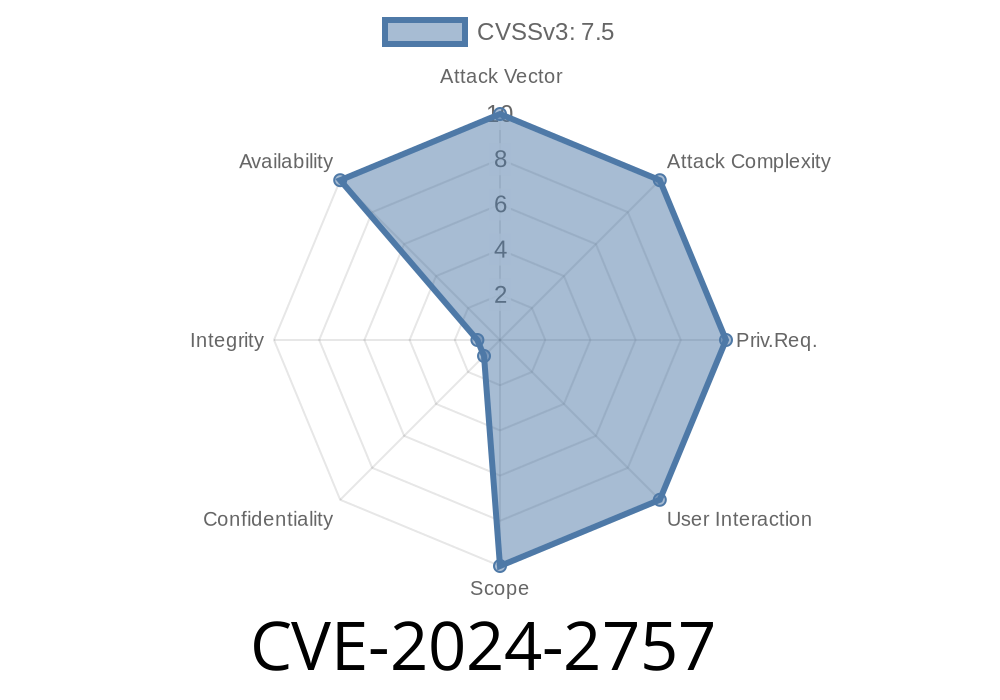The world of programming languages is full of little surprises, but sometimes these surprises can turn into real threats. One recent example is CVE-2024-2757, a bug in the widely-used PHP language. In this post, I’ll break down how this bug works, how a simple input can crash your PHP application, and show you an example you can try yourself (safely). Plus, I’ll point you to the official references so you can dig deeper.
What’s CVE-2024-2757?
This vulnerability affects PHP 8.3.* before 8.3.5, specifically the function mb_encode_mimeheader(), which is commonly used to safely encode email headers.
The bug:
If you pass a certain kind of string—one that’s very long, has no spaces except at the end—this function can fall into an infinite loop. That means if a bad actor knows your web server or API uses this function, they could send a specially-crafted request and tie up your server’s resources until it freezes or crashes. This type of attack is called DoS (Denial of Service).
Why does this happen?
mb_encode_mimeheader() tries to wrap long lines of text so that email headers stay readable. But when it sees a long line *without spaces* until a final space at the end, it never finds a good place to break, and just spins its wheels forever.
Vulnerable PHP snippet
<?php
// Only vulnerable in PHP 8.3.* before 8.3.5!
$input = str_repeat('A', 100000) . " "; // 1 million 'A's, with a trailing space.
header('Content-Type: text/plain');
// This will cause an infinite loop in vulnerable versions!
echo mb_encode_mimeheader($input, 'UTF-8', 'B', "\r\n");
?>
What happens?
On web servers, enough of these requests can knock the site offline
If your app takes user input and directly sends it to mb_encode_mimeheader(), you’re vulnerable.
Real-World Impact
- Email tools: Most web apps use mb_encode_mimeheader() to sanitize user input into email subject/from headers.
Mitigation
- Upgrade: The most effective fix is to upgrade to PHP 8.3.5 or newer, which patches this issue.
- Input Validation: As a secondary safety net, restrict header input sizes, and avoid passing unchecked user data into email header functions.
- Timeouts and Rate Limiting: Make sure your PHP environment and web servers enforce timeouts and limit per-user requests.
Official References
- PHP Security Advisory: CVE-2024-2757
- PHP 8.3.5 Release Notes
- NVD - CVE-2024-2757 Detail
Conclusion
CVE-2024-2757 isn’t as dramatic as some remote code execution bugs—but if your app uses mb_encode_mimeheader(), it can be knocked offline with only a single HTTP POST. Update your PHP, validate your inputs, and always keep an eye on those "boring" libraries you think are safe.
Timeline
Published on: 04/29/2024 04:15:08 UTC
Last modified on: 07/03/2024 01:53:32 UTC
